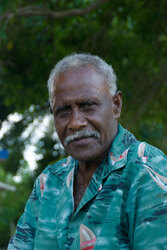[This week’s Communications column for the Vanuatu Independent.]
A colleague recently sent me a link to a story originating from Ireland, in which the national domain administrator refused to allow the registration of certain terms. I’ll let the author of the original article explain:
‘I’ve been trying to register the domains porn.ie and pornography.ie for about four years. Every time I try to register either domain, the Irish Domain Registry (IEDR) refuse my application because “the proposed domain name must not be offensive or contrary to public policy or generally accepted principles of morality.”’
(For reference, ‘.ie’ is the two letter domain name (properly called a country code Top Level Domain, or ccTLD) that that signifies Ireland. Vanuatu’s ccTLD is ‘.vu’.)
The writer continues: “I found myself a solicitor who specialises in digital law (e.g. cases involving the Internet) and arranged an appeal against the refusal of registration.”
Eventually, a court found that there was nothing inherently offensive about the domain names, but to the author’s astonishment, it still found against him. The rationale? The court had no mandate to intervene with the actions of the domain administrator. The body managing Ireland’s ccTLD is a purpose-built non-profit organisation, and though the Irish government has reserved the right to take control of the ccTLD, they haven’t exercised it. In all likelihood, they wouldn’t, except in an emergency.
Vanuatu is currently taking a look at how its ccTLD will be managed in the future, so it’s worth taking a few moments to consider what we would do in the same situation.

 The problem with having 850 words a week is that I can only say one thing at a time.
The problem with having 850 words a week is that I can only say one thing at a time.